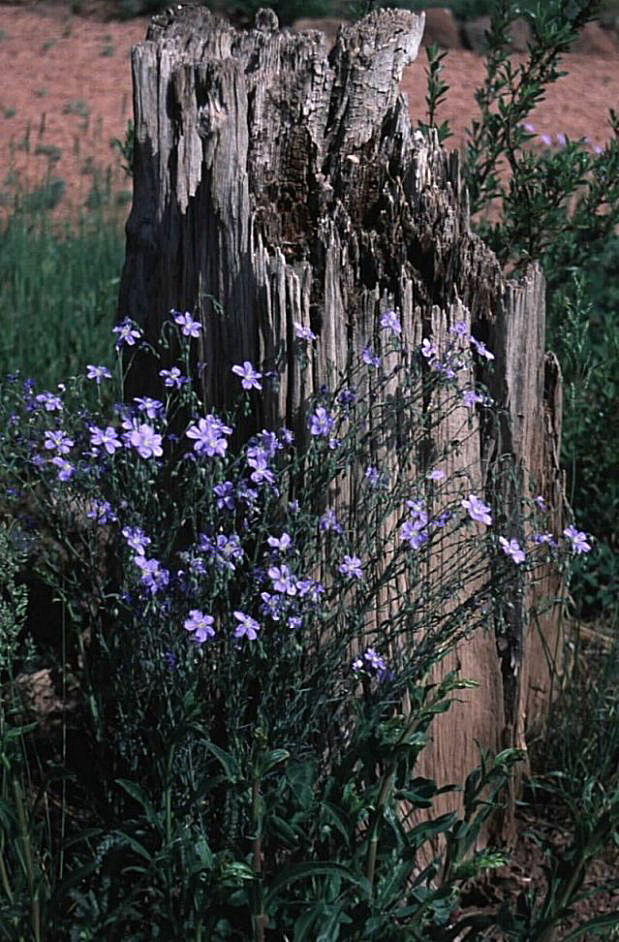| Botanical Name: Linum lewisii | |
| Common Name: Blue Flax, Prairie Flower |

-
Anatomy
-
Culture
-
Design
Plant Type
Perennial
Height Range
1-3'
Flower Color
Blue
Flower Season
Spring, Summer
Leaf Color
Green
Bark Color
n/a
Fruit Color
n/a
Fruit Season
n/a
Sun
Full
Water
Low
Growth Rate
Fast
Soil Type
Sandy, Clay, Loam
Soil Condition
Average, Poor, Well-drained, Dry
Soil pH
Neutral
Adverse Factors
n/a
Design Styles
English Cottage, Meadow, Mediterranean, Ranch, Native Garden
Accenting Features
Showy Flowers
Seasonal Interest
Spring, Summer
Location Uses
Perennial Border, Parking Strip
Special Uses
Mass Planting, Naturalizing, Small Spaces
Attracts Wildlife
Butterflies
Information by: Stephanie Duer
Photographer:
Photographer:
-
Description
-
Notes
Blue flax is native to the mid-west and western states, including Utah. In spring, it forms a clump of upright to arching stems with blue-green, needle-like foliage, the clump swaying nicely in breezes. Simple, five-petaled, blue to violet flowers appear in May and June. The flowers open in the early morning and the petals fall during mid-day as it gets hot; on cloudy days the flowers last longer. But when the petals fall, they form a lovely blue blanket under the plant. Use in sunny borders, mixed in with ornamental grasses, or in a meadowish garden. Grows about 20 to 30 inches tall and 12 to 18 inches wide. A Utah native.
Grow in well drained soil in full sun. Will tolerate clay-loam soils, but heavy clay soils will shorten the plants life. It will self-sow. If a tidy appearance is importance, it may be cut back after blooming. Attracts bees and butterflies. Also listed as Linum perenne v. lewisii.